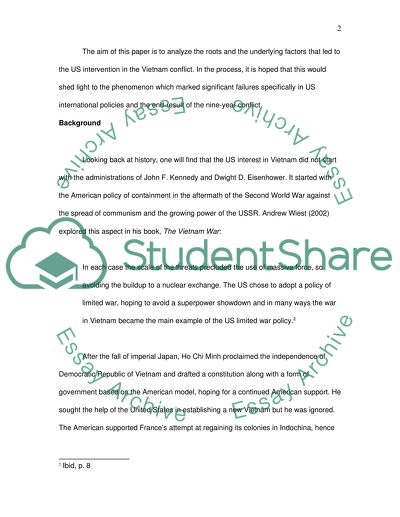Cite this document
(“What caused the Vietnam War (1964-1973) Essay Example | Topics and Well Written Essays - 4000 words”, n.d.)
What caused the Vietnam War (1964-1973) Essay Example | Topics and Well Written Essays - 4000 words. Retrieved from https://studentshare.org/miscellaneous/1543331-what-caused-the-vietnam-war-1964-1973
What caused the Vietnam War (1964-1973) Essay Example | Topics and Well Written Essays - 4000 words. Retrieved from https://studentshare.org/miscellaneous/1543331-what-caused-the-vietnam-war-1964-1973
(What Caused the Vietnam War (1964-1973) Essay Example | Topics and Well Written Essays - 4000 Words)
What Caused the Vietnam War (1964-1973) Essay Example | Topics and Well Written Essays - 4000 Words. https://studentshare.org/miscellaneous/1543331-what-caused-the-vietnam-war-1964-1973.
What Caused the Vietnam War (1964-1973) Essay Example | Topics and Well Written Essays - 4000 Words. https://studentshare.org/miscellaneous/1543331-what-caused-the-vietnam-war-1964-1973.
“What Caused the Vietnam War (1964-1973) Essay Example | Topics and Well Written Essays - 4000 Words”, n.d. https://studentshare.org/miscellaneous/1543331-what-caused-the-vietnam-war-1964-1973.


